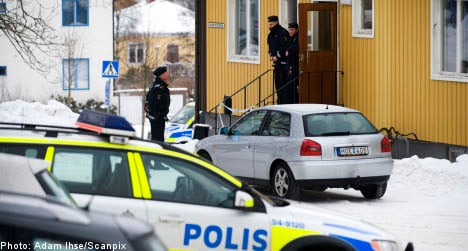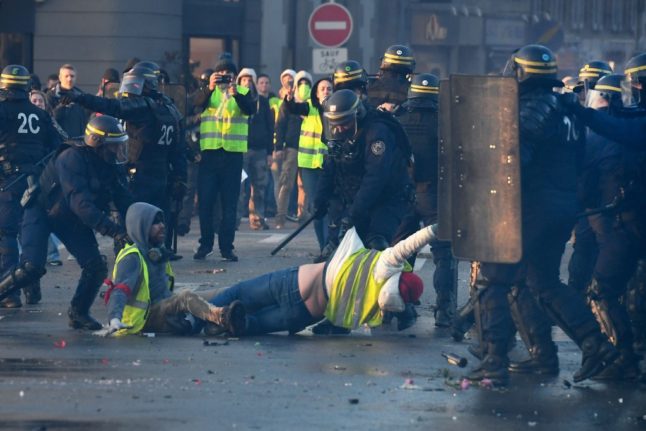The student, a man in his twenties, was shot in the leg.
Staff at Ljungskile Folk High School alerted the police after the man barricaded himself into a restroom and threatened to cut himself in the stomach.
The victim is being treated at Uddevalla hospital, where his injuries are described as serious but not life-threatening.
“He has received fracture injuries that are considered serious,” said regional healthcare spokeswoman Vivian Komstadius.
Police arrived at the scene after receiving a call from the college shortly before eight o’clock on Tuesday morning.
Prior to locking himself in, the man had threatened all those in his immediate vicinity with a knife.
“When the police unit arrived he opened the door and began attacking the policemen,” police spokesman Thomas Fuxborg told news agency TT.
One of the policemen took aim with his service weapon and fired a shot at the student. According to Fuxborg, “there was a risk that he was going to injure either himself or another person.”
Staff at the college told police that the man had been struggling with psychological problems of late.
“We don’t know much about what happened yet. But as I understand it the student in question was in a bad state last night,” said Janne Lindvall, a teacher at the college.
Ljungskile Folk High School is attended by around 250 students.
“People seem concerned, there’s a nervous atmosphere at the school. Police are still here and parts of the residential building have been cordoned off,” said student Sandra Schwartz.
The college’s crisis group was activated immediately after the morning’s events, as students, teachers and other staff were informed of what had happened.
Classes are continuing but students and staff members have been given access to professional counselling if they wish to speak to somebody about the incident.
“The important thing now is to take care of our other students and allay their concerns,” said college head, Ann-Kristin Falkeby.






 Please whitelist us to continue reading.
Please whitelist us to continue reading.
Member comments